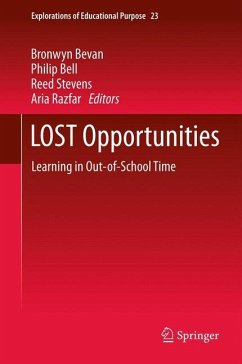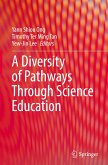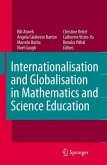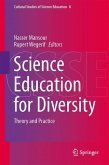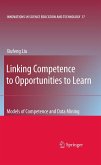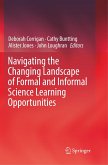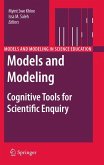Learning in informal settings is attracting growing attention from policymakers and researchers, yet there remains, at the moment, a dearth of literature on the topic. Thus this volume, which examines how science and mathematics are experienced in everyday and out-of-school-time (OST) settings, makes an important contribution to the field of the learning sciences. Conducting research on OST learning requires us to broaden and deepen our conceptions of learning as well as to better identify the unique and common qualities of different learning settings. We must also find better ways to analyze the interplay between OST and school-based learning.In this volume, scholars develop theoretical structures that are useful not only for understanding learning processes, but also for helping to create and support new opportunities for learning, whether they are in or out of school, or bridging a range of settings. The chapters in this volume include studies of everyday and 'situated' processes that facilitate science and mathematics learning. They also feature new theoretical and empirical frameworks for studying learning pathways that span both in- and out-of-school time and settings. Contributors also examine structured OST programs in which everyday and situated modes of learning are leveraged in support of more disciplined practices and conceptions of science and mathematics. Fortifying much of this work is a leading focus on educational equity-a desire to foster more socially supportive and intellectually engaging science and mathematics learning opportunities for youth from historically non-dominant communities. Full of compelling examples and revealing analysis, this book is a vital addition to the literature on a subject with a fast-rising profile.
From the reviews:
"LOST Opportunities is a volume of work focusing on the learning of mathematics and science that takes place outside of school. ... the book offers some exciting agendas for future work. ... the main themes of the book comprise the nature of mathematics in school and outside of school, the 'un-naturalness' of classrooms for learning, and issues of equity in mathematics (and more widely, STEM) education. ... this book is a valuable addition to the literature." (Tim Jay, Research in Mathematics Education, Vol. 15 (3), 2013)
"LOST Opportunities is a volume of work focusing on the learning of mathematics and science that takes place outside of school. ... the book offers some exciting agendas for future work. ... the main themes of the book comprise the nature of mathematics in school and outside of school, the 'un-naturalness' of classrooms for learning, and issues of equity in mathematics (and more widely, STEM) education. ... this book is a valuable addition to the literature." (Tim Jay, Research in Mathematics Education, Vol. 15 (3), 2013)

